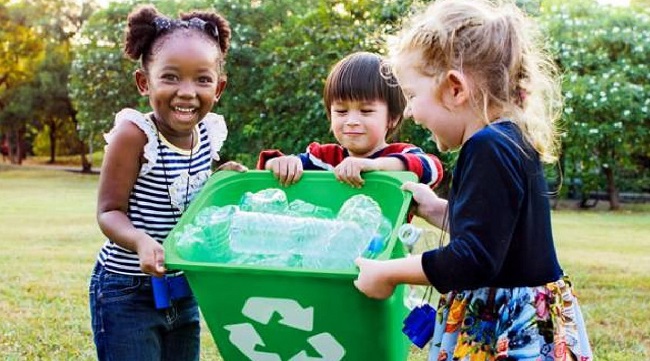Take a long deep breathe, think about all the waste you have thrown out today. From left over food, to plastic packaging, or a piece of paper, etcetera. We generate a lot of waste.

Rich countries only make up about 17 per cent of the world’s population, but they account for about 35 per cent of the world’s waste. The poor or Third World countries produce less waste but about 94 per cent of those wastes are mismanaged compared to three per cent in higher income countries.
The world produces over two billion metric tons of waste every year. Increasing wealth and population are the main drivers for waste production. People can afford more things and, due to the large population, the waste being produced is therefore at an alarming rate.
Waste is a natural by-product of human activities and is not necessarily a bad thing. But if it is not handled properly, it poses a great threat to our environment. Sadly, much of the waste on earth is not handled properly.
Most of the waste in Nigeria and most of the countries in Africa heap their waste products in open air dumpsites. Due to little or no landfills, more than 90 per cent of our waste is being dumped on the road, in water, drainages or simply open air. All these pose a significant threat to our health as humans and ecological sustainability. Oceans of the world are home to gigantic waste and plastic patches. The great pacific garbage patch covers an area of over 1.6 million square kilometres, that’s three times the size of France.
The only way to mitigate the effect of waste on our planet is to recycle religiously. In this part of the world, recycling seems to be foreign to us, so a lot of our adults do not really care about recycling anything as much. But then, if we continue to take recycling and waste management a little less seriously, then the future will truly be a cycle of consequences.
Therefore, we must, as a matter of urgency, begin to teach little children how to recycle. Knowing all the R’s in recycling is key to getting them to engaging in it.
Children must be taught about recycling from their pre-school years. Things such as the following must be involved in their curriculum in schools and parents should also be taught to continue the process at home too.
- They should be reminded the population of people in the World, in some lessons, they should be made to imagine if everyone threw away their dirt into their houses for example.
- They should be taught meaning of words, such as alarming, decompose, biodegrade, tonnes, reuse, reduce, refuse, recycle, etcetera.
- They should be told shocking facts of how long plastics can stay without decomposing, and how badly our environment and oceans are suffering from it.
- Children should be taught the enormous amount of advantage recycling will have on our planet.
- They should be taught how landfill can later cause air pollution by producing methane.
- Recycling clubs should be introduced in schools and communities
- There should be a competition where children win the title of best recycler and also given leadership positions.
- Learning how we can save water by recycling is also very important for children to know.
Children should be taught not to waste their food. But they should also be taught how to make compost manure from their food waste. This way every member of the household will play their part is feeding the plants in the garden with manure.
Colour catches the attention of everyone, and especially children are fascinated by them. We can therefore get children to get excited about recycling by painting and labelling recyclables collection containers. They will always walk up to drop their waste unconsciously.
Whatever is learned by a child is rarely ever forgotten. They are inquisitive, willing to learn and imitate anything they see. We should start recycling ourselves, thereby, giving the children something important to emulate. This way, waste production in Africa can become lesser than we already have and effectively managed too.
Children’s inculcating the culture of recycling is not the end though. The government, private companies and wealthy members of every society must then go on to establishing recycling plants in Africa. That way the culture never dies.
By Halima Imam (Founder, Climate Action Team; @Sadee_eemam)
